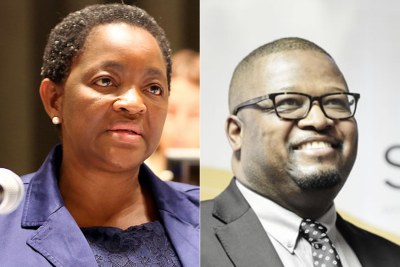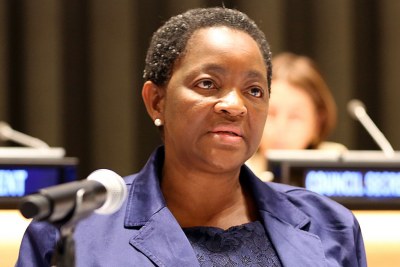-
Africa: Why South Africa's Constitution Is Under Attack
The Conversation Africa, 17 March 2017
South Africa's Constitution, greatly lauded around the world and the product of Nelson Mandela's democratic transition of the mid-1990s, is under attack. It's being blamed in some… Read more »
-
South Africa: Social Grants Crisis Tests the Powers of South Africa's Constitutional Court
The Conversation Africa, 15 March 2017
South Africa's Constitutional Court is once again being asked to deal with a highly politically charged matter that affects the government of the country. The last time was over… Read more »
-
South Africa: South Africa's Grants Debacle - About Political Trickery, Not Separation of Powers
The Conversation Africa, 15 March 2017
The social grants debacle in South Africa throws up a number of questions about the country's state of politics, governance, leadership and democracy. Read more »
-
South Africa: South Africa's Social Grants System - There's More Than Just Money At Stake
The Conversation Africa, 13 March 2017
In South Africa social grants address key social determinants of health such as food insecurity, access to health services, income and early childhood development. About 17 million… Read more »
-
South Africa: Grant Scandal Exposes Myths About How the State Should Run Things
The Conversation Africa, 10 March 2017
The social grants scandal rocking South Africa has been greeted with understandable shock. It's also challenged two popular ideas about how government should operate. Read more »
South Africa's Top Court Steps in to Save the Poor
Three in every 10 South Africans - 17 million of the country's poorest people - receive small social grants from the government which help them to survive. But a combination of government incompetence, private sector greed and suspected corruption forced South Africa's highest court to step in, dictate the terms of a private-public sector contract and ensure that grant recipients will receive their money from April. Writers for The Conversation Africa examine different facets of the crisis.
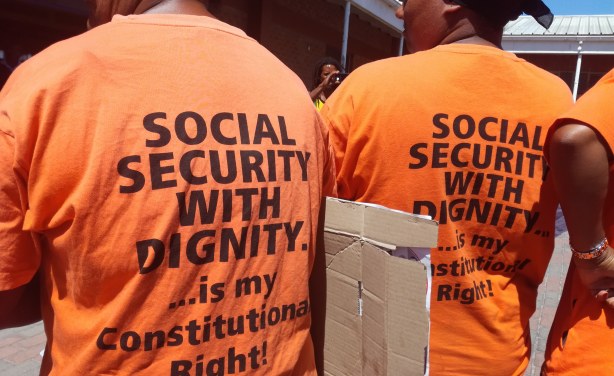
Protesters press for the payment of social grants. South Africa's Constitution includes "second generation" human rights such as the right to food, shelter, education and health services.
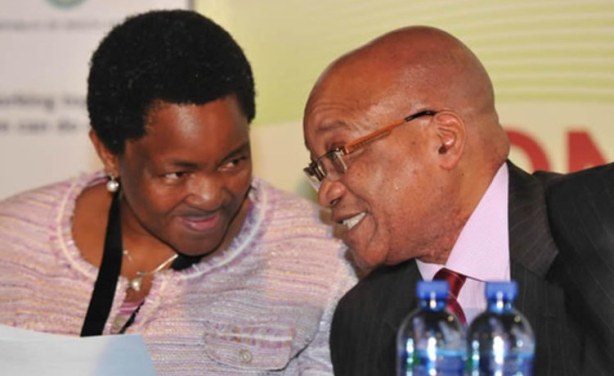
Bathabile Dlamini, left, South Africa's Social Development Minister, is at the centre of the social grants crisis. President Jacob Zuma has so far refused to fire her.
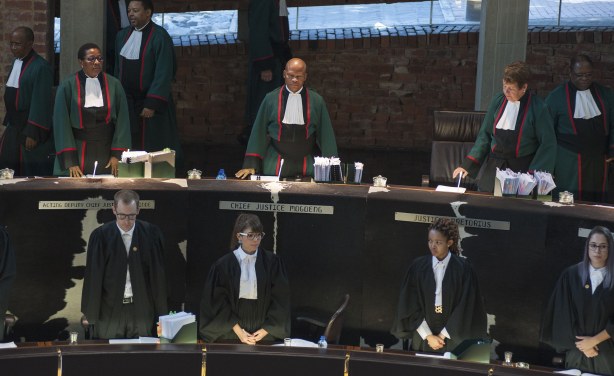
Constitutional Court judges, seen entering their court room during the case involving social grants, have called on Bathabile Dlamini to give reasons why she should not pay the legal costs of the case out of her own pocket.
InFocus
-
Cash Paymaster Services is expected to make R4.6 billion from its new agreement with the South African Social Security Agency. This comes as the Constitutional Court ruled that the ... Read more »
-
The Social Development Minister Bathebile Dlamini has placed the blame for the social grants crisis, squarely at the door of social security agency CEO Thokozane Magwaza. This as ... Read more »
-
There has been calls from labour, opposition parties and the ruling African National Congress for President Jacob Zuma to fire the Social Development Minister Bathabile Dlamini, ... Read more »
